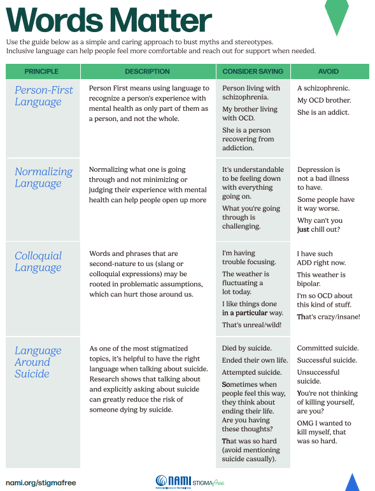Depression is complex and often misunderstood. When a friend or loved one is facing depression, it can be difficult to know what to say. Despite the best intentions, certain phrases can unintentionally cause more harm than good. Understanding what not to say is an important step in offering meaningful support to those struggling with depression.
Five Common Phrases to Avoid
"Just get over it."
Depression is not something that someone can simply "get over." It is a mental health disorder that requires time, treatment, and possibly professional intervention. This phrase minimizes the person's experience and suggests that their condition is a matter of choice rather than a medical issue."We all feel sad sometimes."
While it is true that everyone experiences sadness, depression is a different and more severe condition. Comparing clinical depression to everyday sadness can make the person feel misunderstood and isolated. It is important to acknowledge that their experience is valid and unique."Think Positively."
Suggesting that someone with depression simply think positively is akin to telling someone with a broken leg to walk it off. Positivity can be a helpful tool, but it is not a cure for depression. This advice can lead to feelings of guilt or inadequacy if the individual is unable to "think positively" on their own."You have so much to be thankful for."
While gratitude is beneficial, this phrase can imply that the person is ungrateful or not appreciative of the positive aspects of their life. Depression is not a reflection of one's gratitude or lack of it; it's a complex mental health condition that requires understanding and empathy."It’s all in your head."
This dismissive phrase suggests that depression is not a real or serious condition, which can be incredibly invalidating. Depression is a legitimate medical condition with psychological, biological, and environmental factors. It is important to recognize it as such.
What can I do, then?
Now that we’ve explored what not to say, let’s focus on how you can genuinely support a friend who is struggling with depression.
Listen and Validate Their Feelings. Sometimes, the most powerful thing you can do is listen. Allow your friend to express their feelings without judgment or interruption. Validation involves acknowledging their emotions and letting them know that it is okay to feel the way they do.
Offer Encouragement and Support. Encourage them to seek professional help if they haven't already. Offer to assist in finding resources, such as therapists or support groups. Let them know that seeking help is a sign of strength, not weakness.
Be There for Them. Check in regularly. Let them know you are there for them, whether it’s through a quick text, a phone call, or spending time together. Your consistent presence can provide comfort and a sense of normalcy.
Engage in Activities Together. Invite them to join you in activities they once enjoyed, but do not pressure them if they are not ready. Small steps, like going for a walk or watching a movie, can help them feel connected and remind them of the joy in everyday moments.
Educate Yourself. Learn more about depression and its effects. Understanding the condition can help you provide more empathetic support and avoid misconceptions that can hurt rather than help.
Supporting someone who is severely depressed can be really difficult and requires patience, empathy, and an open heart. By refraining from harmful phrases and offering genuine support, you can help your friend feel less alone and more understood on their journey to recovery.
What not to say to someone who is depressed
Related:

